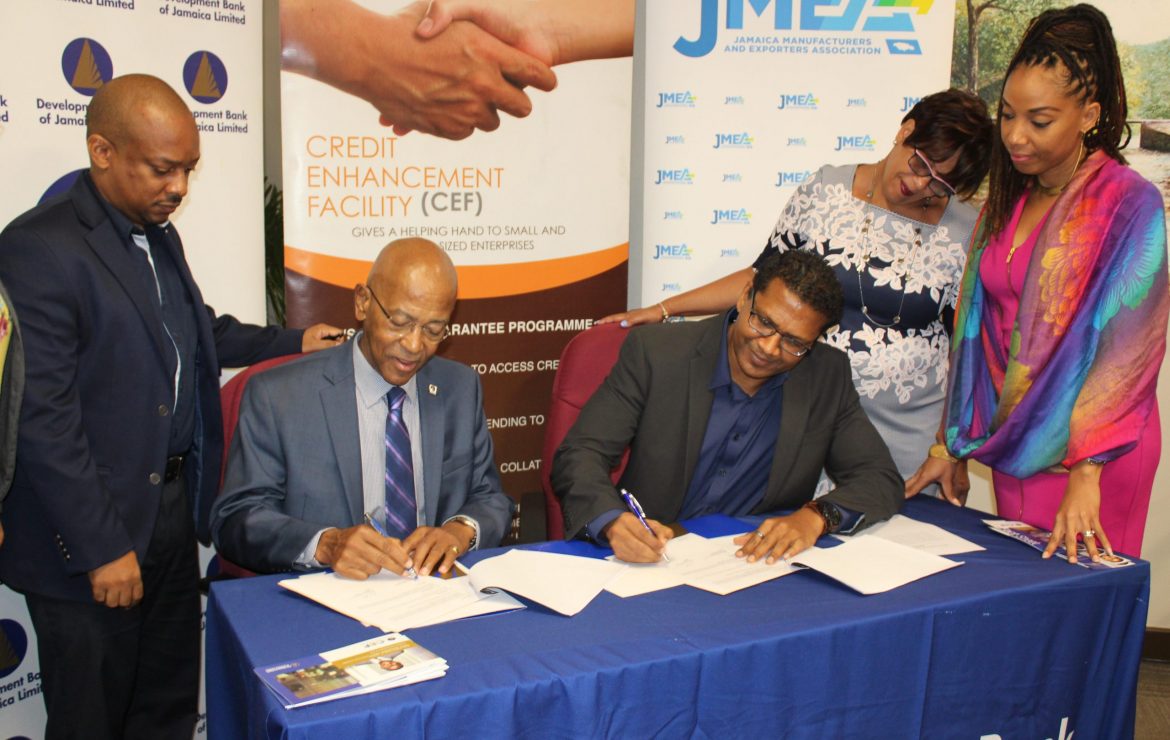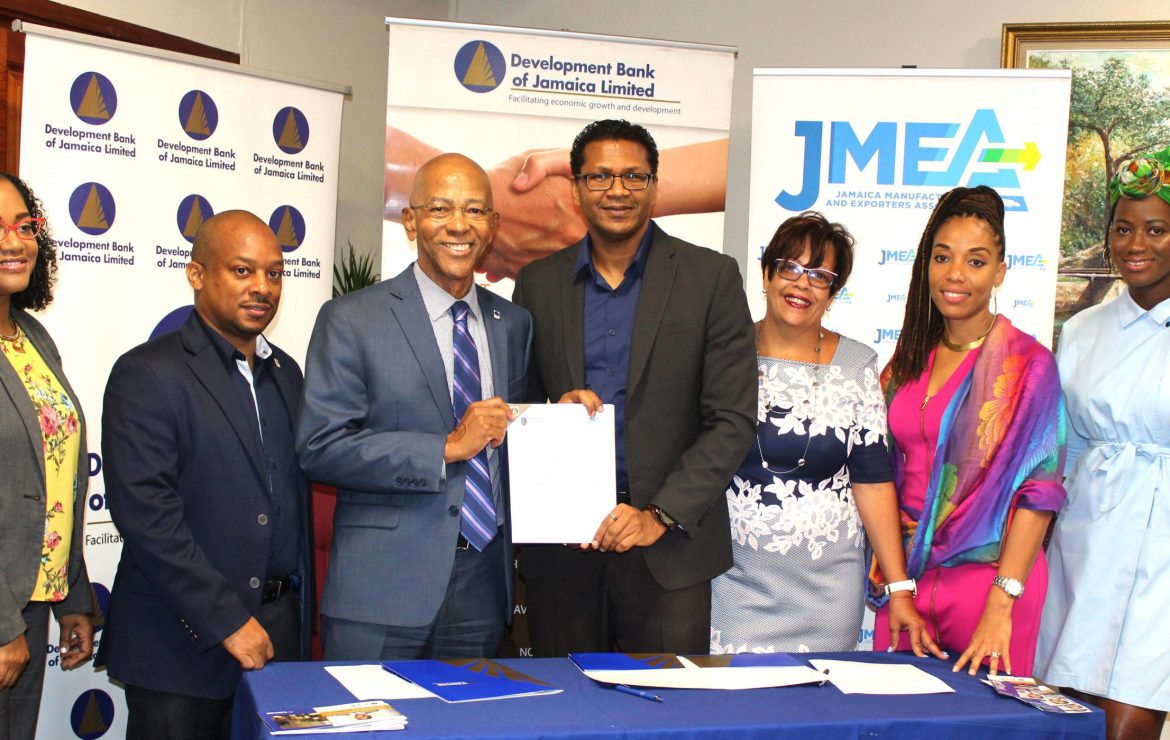DBJ and JMEA sign MoU to support MSME sector
The Development Bank of Jamaica (DBJ) and the Jamaica Manufacturers and Exporters Association (JMEA) signed a Memorandum of Understanding (MoU) at DBJ’s offices on Wednesday, October 23,
2019, to assist JMEA members in accessing DBJ products and services.
The MoU, signed by DBJ Managing Director Milverton Reynolds and JMEA President Richard Pandohie, allows for a suite of products for JMEA members, with an emphasis on DBJ’s recently redesigned Credit Enhancement Facility (CEF), a partial loan guarantee that helps micro, small and medium-sized enterprises (MSMEs) without enough collateral to access loans from financial institutions.
“I think this is a very fundamental partnership as we seek to provide not just low-cost financing, but capacity building for our MSME sector,” said JMEA Executive Director Imega Breese McNab. The capacity building to provide new skills and training to MSMEs comes through programmes such as DBJ’s Voucher for Technical Assistance and Energy Audit Programme, also covered under the MoU.
JMEA Vice-President Michelle Smith said, “A lot of our economic stability is going to come from those same entrepreneurs and we need to push them higher.” Pandohie echoed his colleague’s sentiments on the MoU. “We want our membership to understand it, capitalise on it and make sure that we can show success from it so more of these things can happen,” he said.
Reynolds, who welcomed the new partnership with the JMEA, said, “We are willing to have meetings with their members and to go with them hand-in-hand to the financial institutions to make sure that they can get the help and the facilities that they need.”
Reynolds noted that one of the major challenges facing JMEA members, and MSMEs in general, is the lack of adequate collateral to access financing. “We have recently improved our Credit Enhancement Facility which, we believe, will be a real game-changer for the manufacturing sector in accessing credit,” he said. The redesigned CEF will better support Approved Financial Institutions (AFIs) and Micro Finance Institutions (MFIs) in serving the MSME sector, allowing businesses without enough collateral to still borrow.
Pandohie raised the fact that many MSMEs exist in Jamaica, but the majority are in the services sector. “So, this MoU has basically brought together an instrument that is tailored to the productive sector, which is what is needed to drive employment and innovation,” he said.
The agreement allows MSME members of the JMEA with an annual turnover not exceeding $425 million to access partial guarantees (collateral support) provided by the DBJ’s CEF. Guarantees will be given for loans of (a) $30 million or up to 80 per cent of the loan amount; (b) $10 million or 90 per cent of the amount of small loans and (c) $5 million or up to 80 per cent of loans for start-ups.
JMEA members will also be able to access (a) two of the DBJ’s vouchers (one of which must be the Environmental, Occupational Health and Safety Assessment voucher) which provides over 30 business support services to assist entrepreneurs to create a more viable business operation; and (b) the Energy Audit Grant of $200,000 which allows the company to conduct an energy audit of their facilities, allowing business owners to make more informed decisions about their energy needs.
Under the MoU, the JMEA is responsible for identifying, and then referring to the DBJ, its members who are seeking financing. The two organisations will monitor the progress of the objectives of the MoU for the next 12 months.
The relationship arising from this newly signed MoU is expected to increase the number of JMEA members accessing financing backed by the CEF. While the DBJ now has this agreement with the JMEA, the development bank’s products and services are available to all businesses that qualify.




